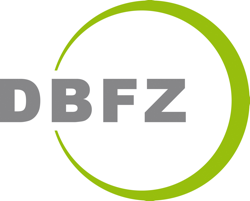Bioenergy Systems Department
The aim of the Bioenergy Systems Department is to contribute to the development of sustainable bioenergy strategies at national and international level. For this purpose, regionally and globally available biomass potentials are determined and the manifold options of different biomass supply concepts are considered.
These possibilities will be elaborated and evaluated in detail, particularly with regard to their sustainable use for energy. The application of well-founded methods for potential analysis and scenario development as well as the development of specific resources and the market introduction of innovative technologies play a major role in this. Together with continuous monitoring of the bioenergy markets, this work forms the basis for the development of sustainable bioenergy strategies in order to further develop biomass as an ecologically and economically advantageous energy source.
In addition, the Bioenergy Systems Department is also responsible for supporting the BMWK's "Biomass to Energy" programme. The main focus is on the scientific networking of all project partners in the form of publications, press work, topic-specific workshops and conferences. The department has been working closely with the Bioenergy Department of the Helmholtz Centre for Environmental Research (UFZ) for three years. The focus of the cooperation is on closing research gaps in the field of sustainable energetic use of biomass, which exist due to the specific expertise of DBFZ and UFZ. In particular, synergy effects from the joint research work are expected due to the complementary character of the research projects.
The research focus "System contribution of biomass", which is located in bioenergy systems departments, works across departments.
The working groups
Biogenic resources are becoming increasingly important not only for energy use but also for material use. Their quantification and location is therefore of central importance for the greatest possible contribution to climate protection and material and energy supply, as well as for the early resolution of competing uses. Against this background, the Resources Working Group is developing nationally and internationally applicable and transferable methods for the transparent quantification of the resource base, conducting spatial analyses and developing web-based map applications.
Focus topics of the working group:
- Development of methods for quantifying biogenic resources
- Development and implementation of (spatial) resource monitoring systems
- Stakeholder mapping
- (Geo-)Statistical analyses and trend updates
- Evaluation of satellite data (e.g. change detection, spectral analyses)
- Provision of a consistent database (e.g. databases, webmaps, dashboards)
Further information on the working group
Contact person:
Dr. Friederike Naegeli de Torres (Head of Working Group)
Phone: +49 (0)341 2434-620
The increasing importance of the bio-based economy oriented towards natural material cycles requires that value chains be optimised in their entirety - from the extraction of biogenic resources to their recycling. Against this background, the mobilisation working group identifies and evaluates relevant resources for bioeconomic activities and develops strategies for their mobilisation.
Focus topics of the working group:
- Analysis of material flows and utilisation paths of biogenic resources
- Development of optimisation and mobilisation strategies for biomasses
- (International) stakeholder analyses and mobilisation
- Identification of (funding) legal framework conditions and derivation of political recommendations for action to steer biomass flows.
Further information on the working group
Contact person:
Dr. Romy Brödner (Head of Working Group)
Phone: (0)341 2434-613
The working group deals with various issues relating to the sustainable production and use of bioenergy. This includes aspects of sustainability assessment as well as the determination of sustainable biomass potentials.
Focus topics of the working group
- Sustainability assessment of different energy biomass options (greenhouse gas emissions, changes in land use, water balance, humus balance, etc.).
- Method development and standardisation in the field of sustainability assessment, e.g. in the fields of Life Cycle Assessment (LCA), Life Cycle Costing (LCC) and Social Level of Sustainability (SLCA).
- Development of methods to determine the potential of different biogenic raw materials for bioenergy production under consideration of competition for use, spatial, structural and political framework conditions as well as sustainability aspects.
Further information on the working group
Contact person:
Stefan Majer (Head of Working Group)
Phone (0)341 2434-411
Against the background of the increasing share of electricity from renewable energies, a targeted integration of biomass into the energy system is necessary. The increasing demand for biomass to cover the energy and material demand as well as the expectations in the heat and transport sector represent a challenge. The aim of the working group "Biomass in the energy system" is therefore to provide analysis tools, models and simulation calculations.
Focus topics of the working group:
- Development of supply scenarios and utilisation strategies for bioenergy in the medium and long term perspective
- Method development and modelling of potential competing uses between bioenergy applications
- System analysis of the demand-oriented provision of bioenergy
- Analysis and evaluation of bioenergy technologies and supply chains
- Concepts for the development of regionally unused biomass including its integration into existing energy and material flows
- Increasing regional added value by optimising existing material flows and extending biomass use cascades
- Analysis of the heating market, quantification of biogenic heat, development of ecologically and economically efficient heat utilisation concepts
Further information on the working group
Contact person:
Laura Garcia Laverde
Deputy Head of the working group
Phone: +49 (0)341 2434-604
Working group "Data Lab"
The data laboratory enables the DBFZ's biomass researchers to use the latest methods of information technology and data science for their projects effortlessly and profitably. The aim is always to make the research data available and sustainably usable according to FAIR principles.
Focus topics of the working group:
- Establishment and continuous expansion of the "data warehouse", which guards the DBFZ's data treasure.
- Research and development as well as operation of digital data products, such as web applications and APIs
- Interactive visualisation of complex data content
- Application-oriented data science across all research areas
Contact person:
Dr. Marco Selig (Head of the working group)
Phone: +49 (0)341 2434-584
Next section: » Biochemical Conversion Department
